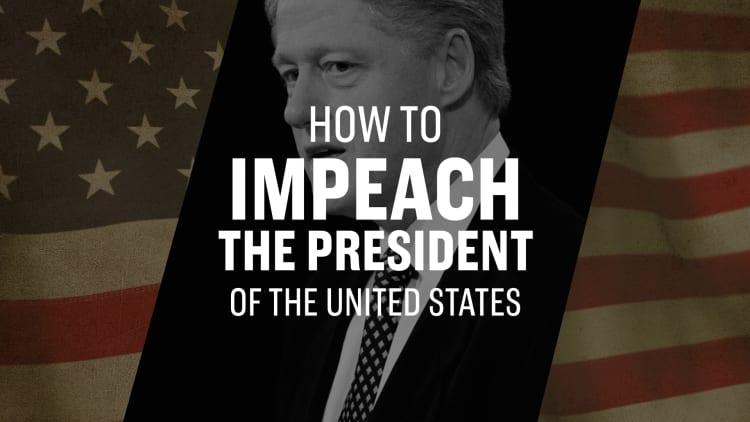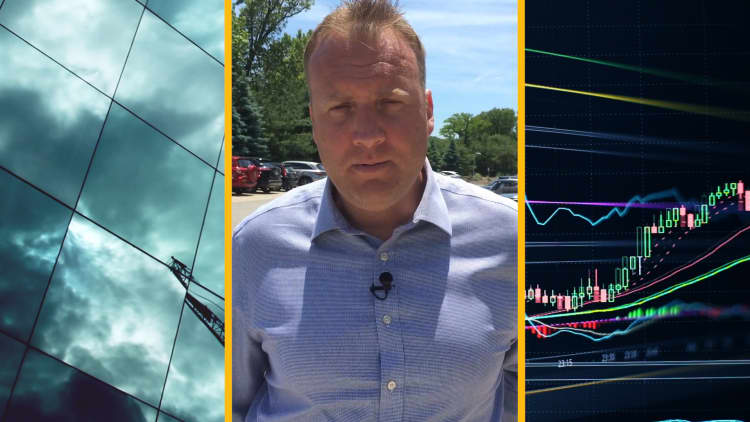Justice Department lawyers on Tuesday used the example of Richard Nixon's impeachment inquiry to argue that the House Judiciary Committee should be denied its request to obtain information about grand jury materials assembled under special counsel Robert Mueller's probe of President Donald Trump.
Lawyers from the Justice Department surprised the judge, Beryl Howell, by arguing that the decision by former Chief Judge John Sirica to release normally secret grand jury materials to the House in 1974, when Nixon faced impeachment, was incorrect, and that those materials should have been kept from Congress at the time, according to NBC News.
Those materials were considered the "roadmap" that led to Nixon's expected impeachment that year. Nixon ended up resigning after before he was formally impeached.
"Wow," Howell said after the hearing in U.S. District Court in Washington, D.C., that the Justice Department now disagreed with Sirica's ruling.
"As I said, the department is taking extraordinary positions in this case," Howell said.
The Judiciary Committee is seeking the Mueller grand jury information as part of its ongoing impeachment inquiry into Trump. That information would include transcripts of testimony by witnesses to the grand jury.
Douglas Letter, a lawyer for the committee, told Howell that the House of Representatives is entitled to "absolute deference" in impeachment inquiries, according to NBC News.
But Elizabeth Shapiro, an attorney in the DOJ's civil division, argued to Howell that in order to properly seek the grand jury material the House should first vote on a resolution authorizing a formal impeachment inquiry, and then seek the material through a judicial proceeding.
Letter disputed that idea.
"We are in an impeachment inquiry, an impeachment investigation, a formal impeachment investigation, because the House says it is," Letter said.
Howell ended the hearing without making a decision on the House's request.
The impeachment inquiry kicked off two weeks ago after it was revealed that Trump, who had been withholding congressionally appropriated military aid from Ukraine, pressured that country's newly elected president in July to investigate former Vice President Joe Biden, a leading contender for the 2020 Democratic presidential nomination.

Letter said the fact that the inquiry was sparked by the Ukraine issue did not mean that the House cannot examine Mueller grand jury material, which is not related to Ukraine, and which was produced before Trump's call with the country's president in July.
Letter said House committees are eyeing different articles of impeachment, which could include obstructing Congress from getting information to which it is entitled.
Before Trump released a transcript of his call with Ukraine's leader, the Trump administration had blocked efforts by Congress to get information about a complaint by an intelligence community whistleblower who had raised red flags about that phone call.
Howell asked a Justice Department lawyer if grand jury materials that the department is currently withholding from Congress have been shared with foreign government officials.
"I don't know the answer to that," the lawyer responded. The attorney said the department would update Howell by Friday on that question.
The Mueller grand jury had investigated Russian interference in the 2016 presidential election, possible coordination with Russians by members of the Trump campaign, and possible obstruction of justice in the Russia probe by Trump himself.
Mueller's report on his investigation found Russia had made repeated efforts to interfere in the election, but did not find evidence that Trump campaign affiliates conspired with Russian agents in those efforts.
The report did not accuse Trump of obstruction, but also pointedly did not exonerate the president of such conduct.
Letter told Howell that what Trump knew as a presidential candidate about WikiLeaks, the document disclosure activist group, could be highly relevant to the ongoing impeachment inquiry. During the 2016 presidential campaign WikiLeaks released emails that had been stolen by alleged Russian agents from the Democratic National Committee and from Democratic nominee Hillary Clinton's campaign chairman, John Podesta.
Referring to Trump's possible knowledge about WikiLeaks' acivity, Letter said questions for the impeachment inquiry included, "Did he lie? Did he fix the election? Did he obstruct justice?"
— Additional reporting by CNBC's Kevin Breuninger.




